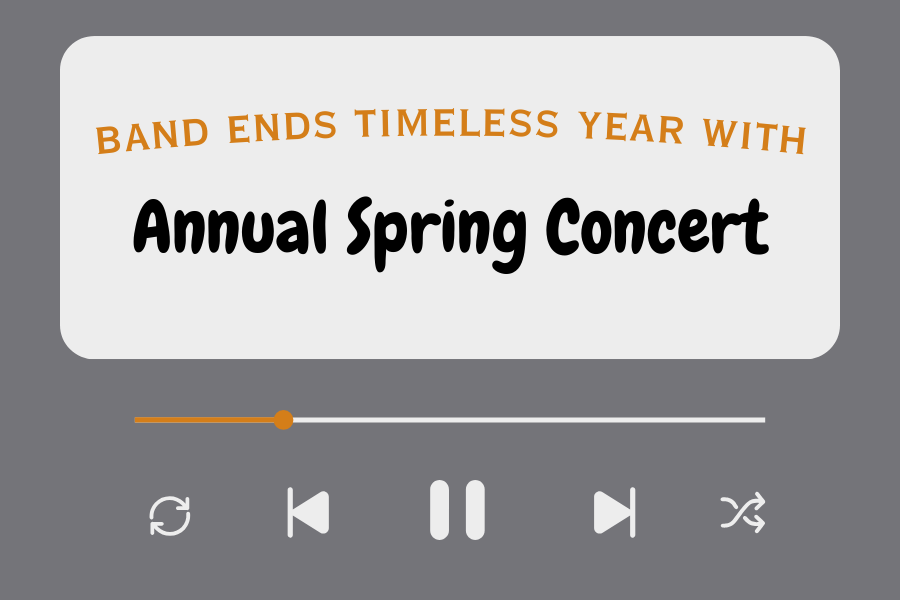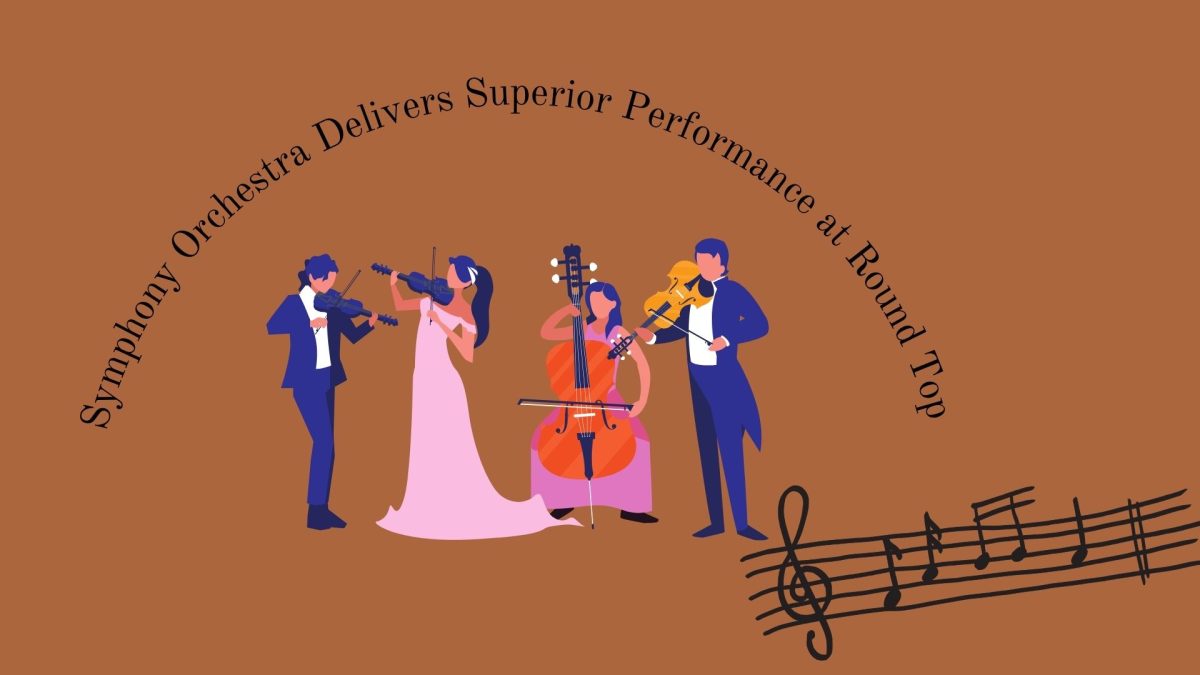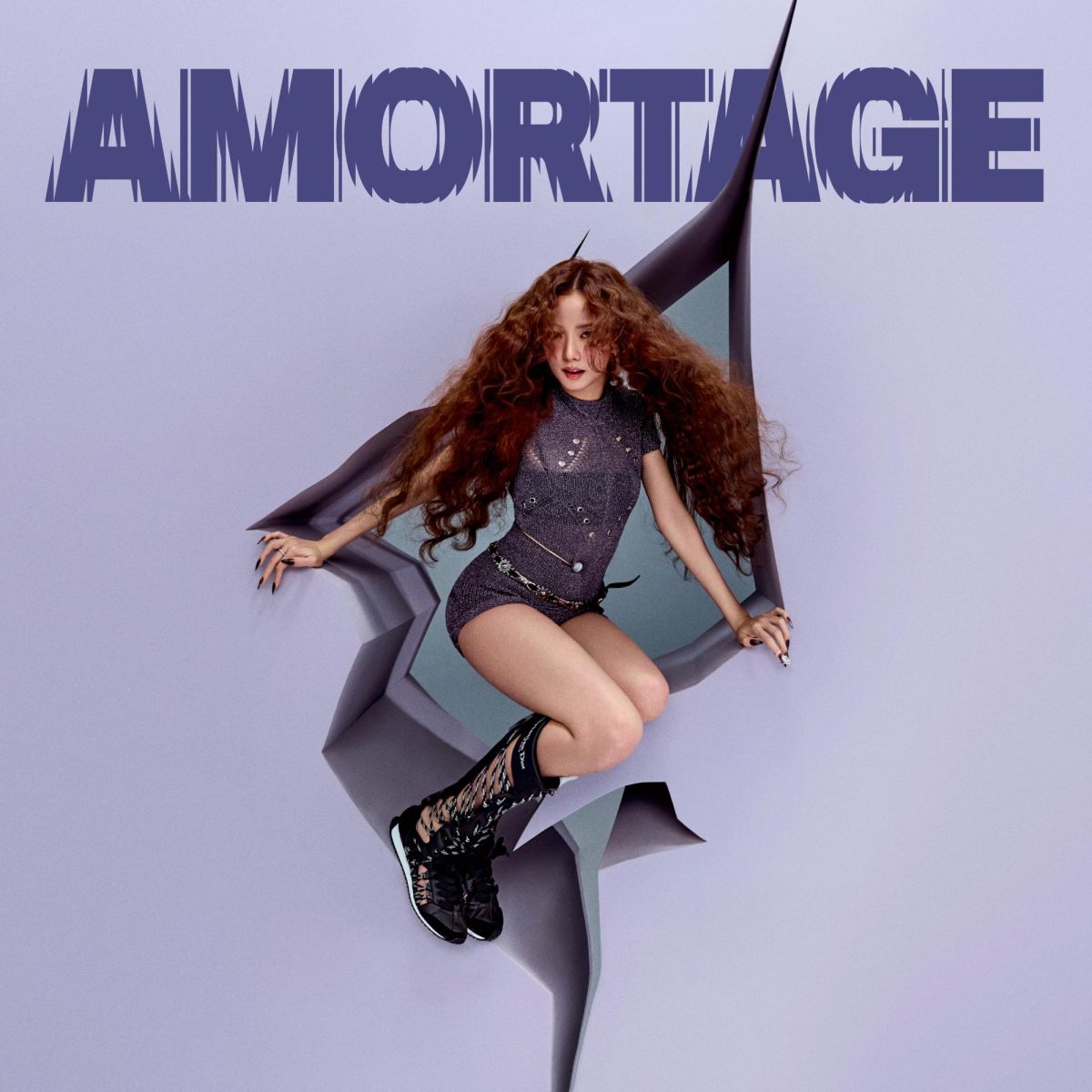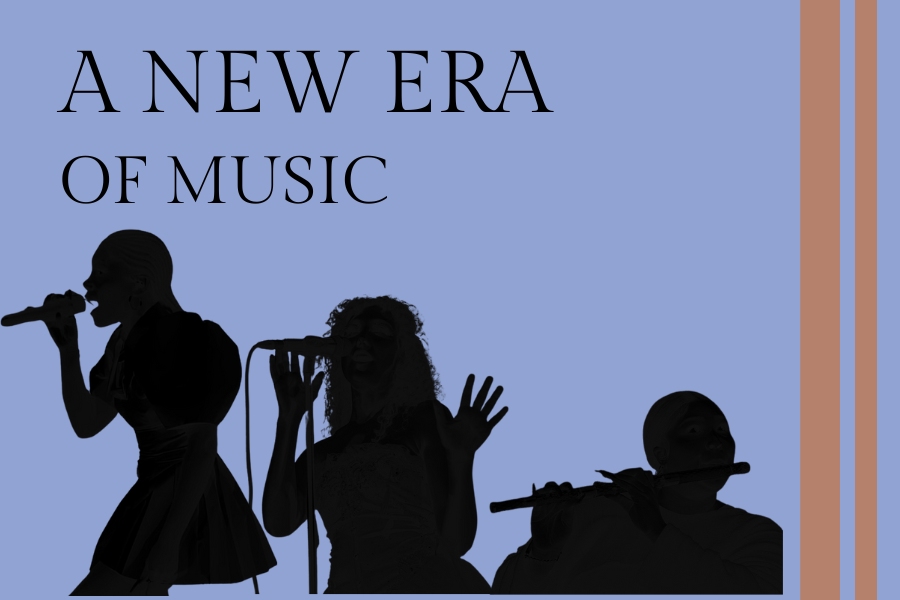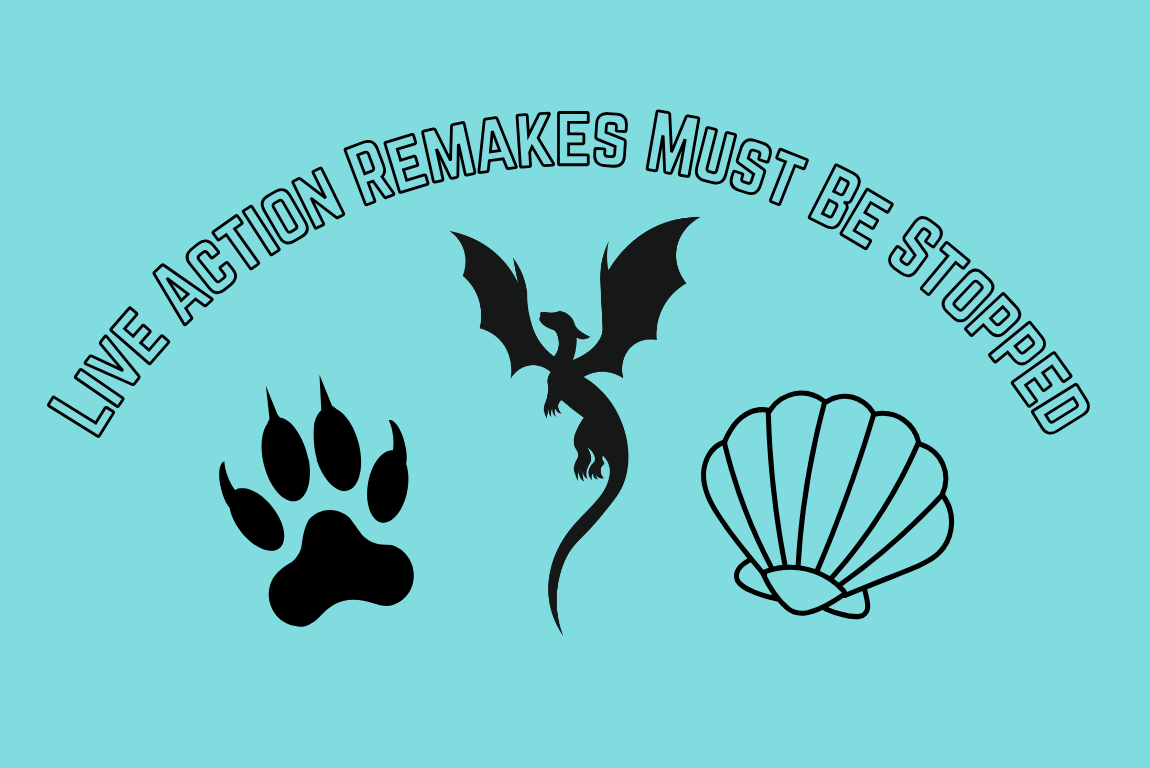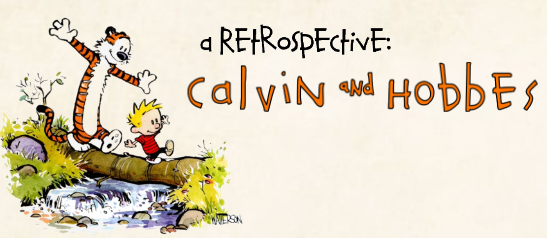Last year, the release of Mitski’s sixth studio album, Laurel Hell, suggested the Japanese-American singer-songwriter’s permanent departure from her 10-year-long musical career. Not only did various online sources claim that the album was Mitski’s final bittersweet farewell to music, but some of the album’s lyrics even seemed to hint at the singer’s torturous relationship with her job and her role in the entertainment industry as a whole, especially those from the album’s lead single, Working for the Knife: “I start the day high and it ends so low / ‘cause I’m working for the knife.” It seemed, with painstaking clarity, that the end was near for Mitski Miyawaki.
Like many, I had resigned myself to this fact a long time ago — which was why I was both shocked and delighted when Mitski announced the existence of an upcoming seventh album on July 23. The album was titled The Land is Inhospitable and So Are We, a bleak yet thought-provoking name, which I found to suit the album perfectly after listening to all 11 songs immediately after they came out on Sept. 15.
The album begins with the idle twang of an acoustic guitar before Mitski paints the gory image of a dead bug stuck to the bottom of a drinking glass — splayed out, oddly enough, like an angel, hence the name of the track, Bug Like an Angel. Then, seemingly out of nowhere, the narrator drops a few saddening details about their life: “As I got older, I learned I’m a drinker / Sometimes a drink feels like family.” However, as the song progresses, it becomes apparent that the true focus of the lyrics is not alcoholism, but self-destruction as the narrator reflects on their unfortunate inability to keep promises or accept help. Religion is also a recurring theme throughout the song: some phrases are sung in a bouncy, choir-like style, and towards the end, the narrator reflects that “I try to remember the wrath of the devil / was also given him by God.” This line carries both a positive and negative message. On one hand, this could suggest that the worst things to happen — like the wrath of the devil — could lead up to a greater purpose. But on the other hand, it conveys the cynical belief that even the most benevolent figures in one’s life could end up hurting them the most.
After I first listened to this track, I immediately rewound it to the beginning to listen to it again —not because I was blown away by its depth, but because I was thoroughly confused by its meaning. From religious contemplation to addiction, the themes it explored seemed to be all over the place. The next few listens offered a little more clarity, although this song in particular seems very open to interpretation. As I listened to it more and more, the melody grew on me, as well as the way the accompanying choir vocals burst out in a musical jumpscare after the line about drinking and family: “FAMILY!” Overall, it would be difficult to describe this song in any way other than “chaotic,” although, in my opinion, the combination of themes and random bursts of energy contributed to its charm rather than detracting from it.
The next song, Buffalo Replaced, echoes both the initial randomness of Bug Like an Angel’s title and the bug motif from the first track with descriptions of mosquitos and “fireflies zooming through the yard like highway cars.” These descriptions contribute to the serene late-evening imagery of the narrator’s backyard, complete with a full moon and a barbecue. Although this scene is picturesque and nostalgic, the main purpose of the song isn’t fully revealed until the second verse, where the narrator describes a hope that persists despite neglect, giving the narrator a reason to keep going: “I know nothing can hurt me when I see her sleeping face.” This hope is later compared to an unstoppable freight train running through the aforementioned backyard, “heading somewhere far away like the new buffalo replaced.” Like the previous track, Buffalo Replaced describes the supportive nature of hope while simultaneously capturing the sleepy longing of someone gazing out at the full moon above the plains.
The track’s central message — that hope is a powerful driving force — followed by comparisons to similarly strong, unstoppable objects is commonly found within books, movies, and other songs, so it isn’t the most innovative. But Buffalo Replaced puts a unique spin on the idea with a unique metaphor that weaves topics such as nature and inevitability into its depiction of hope, successfully distinguishing it from the many other songs about the exact same thing.
Heaven, the album’s third track, follows in the footsteps of Buffalo Replaced in terms of artistic, poignant description as the narrator describes a deep love that they are trying to savor every small piece of: “Now I bend like a willow thinking of you / like a murmuring brook curving about you / As I sip on the rest of the coffee you left / A kiss left of you.” The meaning of this song is relatively straightforward, although the third verse introduces an undercurrent of discomfort as the narrator mentions that “Something set free / Is running through the night / And the dark waits for us,” suggesting that darker elements could be watching the relationship unfold from the shadows, waiting for a chance to strike out and ruin everything.
However, despite its beautiful descriptions, the relaxed and mellow way Heaven begins persists seamlessly throughout the rest of the song. It is devoid of the flares of raw energy, often found in Mitski’s other songs, that could have elevated Heaven from a pleasant track to a truly amazing, memorable, and emotional piece.
In the album’s next track, I Don’t Like My Mind, Mitski conveys a relatable predicament as the narrator bemoans their restless mind that constantly circles back to the mistakes that they’ve made, as well as the opinions of others. The narrator decides to combat these uneasy memories by listening to loud music, working tirelessly, and even — as they declare dramatically during the chorus — eating a cake on Christmas. “A whole cake / All for me,” Mitski sings, which seems like a random fact to emphasize before the next verse explains its place in the song: “And then I get sick and throw up / and there’s another memory that gets stuck.” Despite its general appeal to overthinkers, the song’s unexpected cake-related representation of dealing with judgement reflects Mitski’s unique take on the situation.
Additionally, the final chorus hints that the song could potentially hold a more specific meaning: the narrator begs, “Please don’t take / take my job from me.” Although the “job” mentioned could be overthinking regretful past situations or any job that the narrator is insecure of losing, another possible interpretation is that it really refers to Mitski’s career in music. Echoing past themes from Working for the Knife, the reference could be a plea to Mitski’s audience to cease their expectations of her music and to simply allow her to enjoy doing her job the way she likes to do it.
I found the song itself to be generally good, but not incredible. Unlike the complex metaphors from other songs found later in the album, such as I’m Your Man, the narrator describes their unfortunate situation simply, in a way that doesn’t offer many different interpretations. Therefore, the track seems to lack the ability to deliver the same heavy blows as the others. Additionally, the almost comedic lamentation about the narrator’s shameless cake-eating doesn’t quite carry the same light-footed complexity and grace as the lyrics of the other songs — although it is endearingly bold in its own way, and reminiscent of the similarly out-of-nowhere “FAMILY!” from Bug Like an Angel.
The album’s fifth track, The Deal, begins as an instruction. The narrator describes “a deal you can make on a midnight walk alone” and how to find it, revealing that they themselves went through this process, only they gave their soul for nothing but consequences in return: “I can’t bear to keep it / I’d give it just to give.” Mitski’s exploration of desperation within the song shows a unique perspective on loneliness as she describes it as a one-sided deal. This also ties into the desperation associated with selling one’s soul, revealing the lengths one could go to achieve solace. Upon hearing this interpretation, I was reminded of the touching emotional portrayals and clever references that initially drew me to Mitski’s works. The Deal truly epitomizes Mitski’s creativity and songwriting ability.
When Memories Snow, the following song, has a much bolder beginning, with Mitski brandishing the three titular words like a royal declaration. She carefully emphasizes each word as she continues, describing how the memories “cover up the driveway,” an indirect metaphor that expresses the negative impact of sentimentality on progress. This repeats the negative portrayal of memory from I Don’t Like My Mind, albeit in a prettier, lovelier way: rather than describing memories as a piece of food that gets stuck after vomiting cake, When Memories Snow paints the image of a snowy winter day.
Even when memories melt, they can still be heard from the drainpipe, according to the sleepless narrator, who wishes for a break and enjoys scripting self-congratulatory speeches for imaginary past conversations. The track ends with a description of “the thousand hands / that clap for me in the dark,” tying back into the individually emphasized words and Mitski’s grand, almost cinematic vocals throughout the song.
Although the lyrics don’t seem to have much melodic variation due to the forceful, pounding beats throughout, this actually works in favor of the song, making it seem like more of a confident announcement, which seems to be the song’s original intent. It is also worth noting that the track’s official lyric video is a mere one minute and 44 seconds long, a majority of which is spent on dramatic instrumentals. So while the very short time Mitski spends singing in this song could prevent the audience’s deep emotional connection to the lyrics, it doesn’t make the song any less thought-provoking. In When Memories Snow, Mitski delivers her statement and exits abruptly, leaving her audience to contemplate the meaning behind her compact lyrics.
The album’s seventh track, My Love Mine All Mine, begins with a much calmer energy that persists throughout the song. The narrator describes a deep loving connection that they entrust to the moon, imploring, “Moon, tell me if I could / send up my heart to you.” The importance of this love is further emphasized by the simple, repetitive chorus, where the singer insists that “Nothing in the world belongs to me but my love, mine all mine all mine.” However, even the simplicity of the phrase holds meaning: it is a simple fact that love is one of the only things that stays with a person no matter what.
According to Spotify, My Love Mine All Mine is currently Mitski’s second most popular song of all time, and it isn’t difficult to understand why. The song sums up the simplicity of being in love, and Mitski’s soft vocals throughout — akin to a lullaby — help relax the listener into a haze of serenity and comfort, supporting the breezy, unhurried happiness that one could be lulled into by love.
This masterpiece is directly succeeded by another. Continuing the snowy theme from When Memories Snow, the album’s next song — and one of my personal favorites — is entitled The Frost and begins with the description of a light smattering of frost that “looks like dust settled on the world / After everyone’s long been gone.” This scene evokes utter peacefulness, bringing to mind a world covered in a blanket of untouched snow. Although this conveys perfection, it also brings forth a tinge of sadness: the frost will remain pristine forever with no one around to enjoy it. The narrator reflects on how they are the only one left because they were either hiding or forgotten, reinforcing the simultaneous loneliness and tranquility that accompanies the initial wonder of a sparkling white wonderland. This loneliness is further expanded upon later in the song, the first line of the first chorus adding nostalgia to the mix: “No one to share the memory / of frost out the window / this morning after you’re gone.” This part also introduces a more specific connection to a single person, suggesting that the world isn’t actually abandoned — it only seems that way due to someone’s absence.
This is confirmed later in the track, where the narrator comes to a heartbreaking realization: “You’re my best friend / Now I’ve no one to tell how I lost my best friend.” The simplicity of these lyrics epitomizes the simplicity of the rest of The Frost: the lyrics are short and crisp, much like the glimmering frost layer they sorrowfully describe.
To me, this song is beautiful due to its raw emotional impact. Mitski evokes a deep, soul-empty feeling that no other artist can capture as perfectly. Every time I listen to this track, the temperature of the room I’m in seems to drop, as if it recognizes the devastating sadness imbued throughout the piece.
The next track, Star, is a slow track about a love that winked out of existence. Unlike the brightly burning ball of fire and gas the title could bring to mind, the star in this song is an old, faded thing, an artifact leftover from a shining dynasty of success. “We acted like two fools,” the narrator recounts bitterly at the beginning. “We were so glad / So glad to have found it.” Later on, it is revealed that the love has “traveled very far,” but again, this is a bittersweet sentiment, given the eventual end of the love despite the happiness it brought in the moment.
Additionally, the lyrics of the chorus lend insight as to why Mitski chose the metaphor of a star for faded love: “I’ll keep a leftover light / burning so you can keep looking up / Isn’t that worth holding on?” Although the love is long gone, a trace of it remains, like the remnants of a long-dead star.
The slow music and quietly burning emotion captured in Star is similar to the rest of the songs, with their intentional simplicity. While Star doesn’t necessarily stand out, it fits in well with the other tracks. And, for me, it is nestled between my two favorite songs on the album, facilitating the transition between the calm sorrow of The Frost and the haunting dread of I’m Your Man.
I’m Your Man, the album’s ninth track and another of my personal favorites from the album, ties back into the angels and religion mentioned in the first song. Similar to Bug Like an Angel, this song begins with a metaphor: “You’re an angel / I’m a dog.” Then the narrator changes their mind, also working in the title of the song: “Or you’re a dog and I’m your man.” This highlights the relationship between the singer and the so-called “dog,” which has an adoring relationship with its “man,” putting its owner on a pedestal and obeying commands with absolute loyalty. However, this ultimately leads to the dog’s downfall; the narrator describes how the admirer is eventually destroyed, but also expresses regret at how things turned out: “I’m sorry I’m the one you love / No one will ever love me like you again.” And the next line adds yet another layer of complexity to the situation: “So if you leave me, I should die / I deserve it, don’t I?”, suggesting that the man is equally dependent on his dog to love him. As the song progresses, it becomes more and more apparent that the man isn’t simply a destroyer – he is also afraid that his loyal servant will one day figure him out, and expresses his dread at that day growing closer and closer. He is, perhaps, even afraid of the dog himself: in a dread-fueled lament, the narrator croons, “One day you’ll figure me out / I’ll meet judgement by the hounds.”
The background music of this song greatly enhances the uncertain yet resigned emotions expressed within, rising to a crescendo as the narrator concludes, “You believe me like a god / I betray you like a man” to convey their distress. Bouncing vocals and barking dogs fill in the silence after the lyrics, sounding almost like the conclusion to a chant or ceremony, while the barking adds a sense of fear and discomfort.
These lyrics also tie into the ongoing situation of Mitski’s supposed upcoming hiatus from her singing and songwriting. It seems as if she is writing directly to her audience, describing how she feels as if she is put on a pedestal and could eventually let everyone down – yet another lyric, among several, supporting this theme.
Overall, I’m Your Man seems to masterfully encapsulate the pressure of being revered. The production, lyrics, and melody come together to craft an environment of stress and anxiety that gets Mitski’s point across with remarkable accuracy. And what makes the song even more hard-hitting is its relatability: although most listeners are unlikely to be as prominent as Mitski, the message could still apply to many, showing that one doesn’t have to be an Academy Award-nominated singer-songwriter to feel as if they are placed on a pedestal.
The eleventh and final track on the album is called I Love Me After You. The description within this song focuses mostly on the small details, such as brushing hair, applying toner, and drinking water. The narrator also displays an unabashed joy, “laughing in the mirror” and walking through the house without clothes while the windows are open, proclaiming, “Let the darkness see me!” to emphasize the bold happiness following their previous relationship. The lyrics also transition from calling the narrator’s previous significant other the “king of all the land” to stating that “I’m king of all the land,” showing that the end of a relationship could also lead to a confidence boost.
This song is perhaps the most simple in structure throughout the entire album; it even lacks a chorus. But the positive note that it ends on is a sweet conclusion to the album as a whole. Upon first reading the song title, I interpreted it to mean that the narrator loves their significant other before themselves, hinting at a toxic and one-sided relationship. But I Love Me After You goes in a different direction. Hearing its true meaning was a relief — it allowed the album to end on a good note.
Throughout the album, Mitski explores several complex themes; some love-related and some the furthest possible thing from love; some dreadful or unsatisfied and some hopeful, possibly inspirational. One recurring element that distinguishes the album as a whole from all the others is the quiet, tender sound throughout. Even the louder moments of the album — from the crescendo at the end of I’m Your Man to the entirety of When Memories Snow — contain a dim, muted quality, as if the sound is muffled by a soft scattering of snow. The muffled sound, however, does not reflect the raw emotion embedded within each track as Mitski deftly explores addiction, loneliness, faded love, and other topics with a light touch that makes a heavy impact.
Other recurring subjects include idolization and exhaustion, which at first could seem unrelated but, on further examination, support the idea that The Land Is Inhospitable and So Are We could truly be Mitski’s final album. And while I would be overjoyed at the release of an eighth album, the soft, sad undertones lurking beneath the surface of this album seem to evoke the bittersweet final touch of a farewell. And if Mitski really decides to quit music for good, the idea of the album itself could provide the same nostalgic outpouring of emotion as the songs do. In other words, this is a good album to end a musical career — not with a bang, but with a decrescendo.




